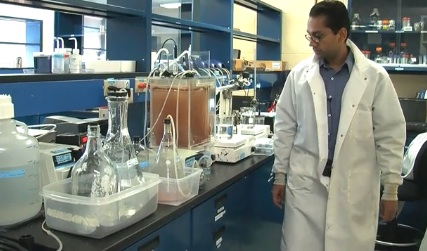 Columbia University engineers were awarded $1.5 million from the Bill & Melinda Gates Foundation for their project to develop a revolutionary new model that turns waste water to energy.
Columbia University engineers were awarded $1.5 million from the Bill & Melinda Gates Foundation for their project to develop a revolutionary new model that turns waste water to energy.
Kartik Chandran, an associate professor of Earth and Environmental Engineering is working with partners in Ghana on the development of an innovative technology to transform fecal sludge into biodiesel and create the “Next-Generation Urban Sanitation Facility” in the city of Accra.
Waste Enterprisers, an American company based there, in partnership with the Columbia University scientists will be converting the organic compounds present in fecal sludge to biodiesel and methane, two potent sources of energy, and thus convert a waste-processing facility into a biorefinery. By viewing waste water as a resource for power, the very term “waste water” becomes obsolete. And, with the influx of money from Bill Gates, waste-to-fuel technologies may start receiving more attention from other sources of funding.
The biorefinery will not only be an economical source of fuel, but, by minimizing discharge of fecal sludge into local water bodies, it will also contribute to improved human health and sanitation. Chandran says that potential outcomes of his work will also include integrating the bioprocess technology component into a social business model that could spread the technology across the globe, especially in developing economies.
Chandran has been associated with Ghana for two years as the faculty advisor for the Columbia University Engineers without Borders Ghana team and expects to involve them in this project as well.
“This project also affords a new path in engineering education, both in the United States and Ghana,” he says. “By training tomorrow’s engineers in sustainable approaches to ‘resource and energy recovery’ rather than ‘wastewater treatment,’ a sea-change can be achieved in the way we perceive of and manage human waste.



















